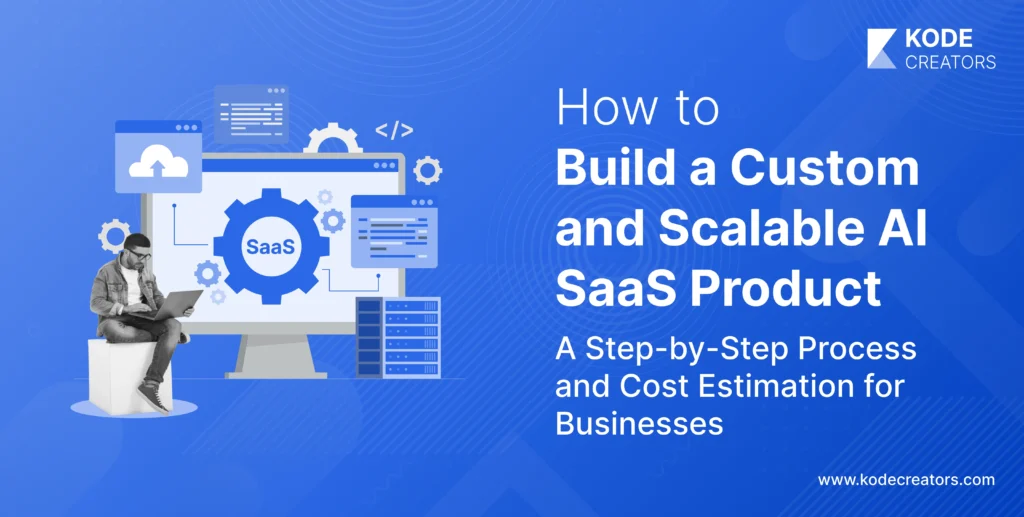Set to be a leading tech event, Gitex 2024 Dubai will showcase the latest in digital innovation to the world. The right mobile app development partner at GITEX could be the game-changer for your business. Where hundreds of companies are on show, demonstrating their skills from big tech firms to the most creative startups, it's a pretty rare opportunity to meet that potential partner face-to-face. But then, it feels like there isn't really a strategy and you're left with a sea of options. So we’ve prepared this guide to take you through Gitex 2024 efficiently so that you can find the right app development team for bringing your ideas to life.
Preparing for Gitex 2024
As the dates for Gitex 2024 Dubai draw near, it's crucial to lay the groundwork for a productive experience. This massive tech gathering can be overwhelming, but with the right preparation, you'll be well-equipped to find your ideal mobile app development partner.
First things first: define your app development needs. Take some time to sit down with your team and clearly outline what you're looking for. What are the core features of your app? Who is your target audience? Are you aiming for iOS, Android, or both? Having a clear vision will make your conversations with potential partners much more fruitful.
Don't forget to consider your budget and timeline. Be realistic about what you can afford and when you need your app to launch. These factors will play a significant role in choosing the right development company.
Once you've nailed down your requirements, it's time to start your homework on the companies attending Gitex. The event's website will likely have an exhibitor list – this is your treasure map. Start exploring the websites of companies that catch your eye. Look at their portfolios, read case studies, and check out any client testimonials you can find. Make a shortlist of potential partners that seem to align with your needs and vision.
Pro Tip:
Don't wait until you're at the event to make contact. Reach out to your shortlisted companies in advance. Many attendees' schedules fill up quickly, so securing meetings ahead of time can be a game-changer. When you contact them, briefly introduce your project and ask if you can schedule a meeting or demo at the event.
Speaking of demos, these can be incredibly valuable. Seeing a company's work in action can give you insights that a portfolio alone can't provide. Ask if they can show you apps similar to what you're envisioning.
As you're setting up these meetings, don't forget to prepare yourself. Craft a concise "elevator pitch" for your app idea. You'll be doing a lot of explaining at Gitex, and having a well-rehearsed summary will make these conversations smoother and more productive.
Lastly, set some clear objectives for what you want to achieve at Gitex. Are you aiming to find your development partner by the end of the event? Or are you gathering information to make a decision later? Having clear goals will help you stay focused amidst the whirlwind of innovations and possibilities at Gitex 2024.
Remember, preparation is key. The more groundwork you lay before the event, the more effectively you'll be able to navigate the exciting but potentially overwhelming environment of Gitex. With these steps, you'll be well on your way to finding the perfect mobile app development partner to bring your vision to life.
Getting around the Gitex 2024 Event
Understanding the event layout and sectors:
Gitex 2024 is likely to be divided into specific technological sectors. Familiarize yourself with the event map, focusing on areas relevant to mobile app development such as "Software Development," "AI & Machine Learning," and "Mobile Technologies." Knowing the layout in advance will help you navigate efficiently, saving time and energy during the event.
Utilizing event apps and digital tools:
Download the official Gitex 2024 app as soon as it's available. These apps typically offer interactive maps, schedules, and sometimes networking features. Additionally, consider using note-taking apps or digital business card scanners to keep track of the information you gather throughout the event.
Making the most of networking opportunities:
Gitex isn't just about scheduled meetings - it's a hub for spontaneous connections. Keep an eye out for networking events, panel discussions, and even casual gatherings around popular booths. Don't hesitate to strike up conversations with fellow attendees; you never know who might provide valuable insights or become a potential partner.
Evaluating App Development Companies at Gitex
Assessing their portfolio and demo apps:
When you approach a company's booth, ask to see examples of their previous work. Pay close attention to apps they've developed that are similar to your project in terms of functionality, industry, or target audience. Don't just look at screenshots; request live demonstrations if possible.
This hands-on experience will give you a feel for the user interface, performance, and overall quality of their work. Ask about the challenges they faced during development and how they overcame them. This will provide insights into their problem-solving abilities and creativity.
Discussing their technology stack and expertise:
Engage in detailed conversations about the technologies they use. Inquire about their preferred programming languages, frameworks, and development tools. Ask why they choose these particular technologies and how they stay updated with the latest trends.
If your project requires specific technologies or integrations, discuss their experience with these. Don't hesitate to ask about their team's qualifications, certifications, and areas of specialization. A company with a diverse and up-to-date technology stack is more likely to provide innovative solutions and adapt to your project's unique needs.
Understanding their development process:
Request a walkthrough of their typical development process. Look for companies that follow established methodologies like Agile or Scrum, as these often lead to more efficient and flexible development. Ask about how they handle project management, communication with clients, and quality assurance. Inquire about their approach to testing, both during development and before launch.
Understanding their process will give you a clear picture of what to expect if you choose to work with them. Pay attention to how they incorporate client feedback and handle change requests during the development cycle. A transparent and well-structured process is often indicative of a professional and reliable development partner.
Key Questions to Ask Potential Partners
Project management and communication:
Understanding how a company manages projects and communicates with clients is crucial for a successful partnership. Ask about their preferred project management tools and methodologies. Inquire about the frequency and format of progress updates – do they offer regular video calls, email reports, or access to project management platforms? Discuss their approach to handling scope changes or unexpected challenges. It's also important to clarify who your main point of contact will be and how quickly you can expect responses to your queries. A company with clear, transparent communication processes is more likely to keep your project on track and aligned with your vision.
Pricing models and cost estimates:
Financial clarity is essential from the outset. Ask potential partners about their pricing structure – do they offer fixed-price contracts, time and materials billing, or a hybrid model? Request a detailed breakdown of costs, including any potential hidden fees for things like project management, quality assurance, or post-launch support. Inquire about their policy on scope changes and how these might affect the overall cost. It's also wise to ask about payment schedules and terms. While it's unlikely to get an exact quote on the spot, a reputable company should be able to provide a ballpark estimate based on your project description. Remember, the cheapest option isn't always the best – consider the value proposition in terms of quality, expertise, and long-term support.
Timeline and milestone planning:
Discussing timelines and milestones is crucial for setting realistic expectations. Ask potential partners about their estimated timeline for a project like yours. Inquire about how they break down the development process into phases or sprints, and how they set and track milestones. Discuss their approach to handling potential delays and how they ensure deadlines are met. It's also important to understand their capacity – can they dedicate a full team to your project, or will resources be shared? Ask about their policy on beta testing and how they incorporate feedback before the final launch. A company that provides a clear, structured timeline with well-defined milestones demonstrates good planning and project management skills, which are essential for delivering your app on time and within budget.
Leveraging Gitex-Specific Opportunities
Attending relevant talks and panel discussions:
Gitex isn't just about exhibitor booths; it's a treasure trove of knowledge shared through talks and panel discussions. Review the event schedule in advance and mark sessions relevant to mobile app development, emerging technologies, or your specific industry. These talks often feature industry leaders and innovators who can provide valuable insights into current trends and future predictions.
During these sessions, take notes on new ideas or technologies that could enhance your app concept. Don't shy away from asking questions during Q&A segments – this is your chance to get expert opinions on challenges you might be facing. Additionally, these sessions are great networking opportunities; you might find potential partners or collaborators among fellow attendees who share your interests.
Participating in pitch competitions and hackathons:
Gitex often hosts pitch competitions and hackathons, which are excellent opportunities to showcase your app idea or to see cutting-edge innovations in action. If you're ready, consider participating in a pitch competition. This can help you refine your concept, gain valuable feedback from judges, and potentially attract investors or development partners.
Even if you're not pitching, attending these events can be incredibly insightful. You'll see how other startups present their ideas and might discover innovative approaches you hadn't considered. Hackathons, on the other hand, provide a glimpse into how developers tackle challenges in real-time. Observing or participating in a hackathon can help you identify skilled developers and creative problem-solvers who might be perfect for your project.
Exploring startup zones for innovative partners:
Many tech exhibitions, including Gitex, have dedicated areas for startups. These startup zones are hotbeds of innovation, often showcasing cutting-edge technologies and fresh approaches to app development. Take time to explore these areas thoroughly. Startups are typically more agile and open to unique projects, which can be advantageous if you have a novel app idea. They might offer more personalized attention and competitive pricing compared to larger, established firms.
Engage with these young companies, ask about their specialties, and see demos of their work. Pay attention to startups that have won awards or received significant funding, as these accolades often indicate quality and potential. Remember, today's startup could be tomorrow's industry leader, and partnering with them early could lead to a fruitful long-term relationship.
Assessing Cultural Fit and Communication
Evaluating team dynamics and company culture:
Pay close attention to how team members interact with each other and with potential clients at their Gitex booth. A cohesive team that communicates well internally is more likely to work efficiently on your project. Ask about their company values, work environment, and how they foster creativity and innovation. A company culture that aligns with your own can lead to a smoother collaboration and better results.
Considering language and time zone differences:
If you're considering partnering with an international company, discuss how they handle language barriers and time zone differences. Ask about their experience working with clients from your country and how they ensure clear communication across cultures. Inquire about their availability for meetings and their responsiveness during your working hours. A company that has solid strategies for managing these challenges can help prevent misunderstandings and delays in your project.
Assessing long-term partnership potential:
Look beyond your immediate project and consider the potential for a long-term relationship. Ask about their client retention rate and whether they offer ongoing support and maintenance after app launch. Discuss their approach to scaling apps and implementing future updates or new features. A company that views your project as the beginning of a lasting partnership, rather than a one-off job, is more likely to be invested in your app's long-term success.
Post-Gitex Follow-up and Decision Making
Organizing and reviewing collected information:
After the whirlwind of Gitex, take time to sort through the business cards, brochures, and notes you've collected. Create a spreadsheet or document to compare potential partners based on key criteria like expertise, cost, and cultural fit. Review any demos or presentations you've seen, and reflect on your personal interactions with each company. This organized approach will help you see the big picture and identify the strongest candidates.
Conducting additional research and reference checks:
Don't hesitate to reach out to companies for any additional information you need. Ask for client references and take the time to contact them for honest feedback about their experiences. Conduct deeper online research, looking for reviews, case studies, or news articles that might provide more insight into the companies you're considering. This extra due diligence can reveal valuable information that wasn't apparent during the event.
Making the final decision:
Armed with your organized information and additional research, it's time to make your decision. Consider setting up follow-up video calls with your top choices to address any final questions or concerns. Involve key stakeholders in your organization in the decision-making process. Weigh all factors – technical capability, cost, communication, cultural fit, and long-term potential – to choose the partner that best aligns with your project needs and company values. Remember, the right partner isn't just technically proficient; they should also be someone you're excited to work with throughout your app development journey.
Conclusion:
Choosing the right mobile app development provider can be challenging, but with careful preparation and a strategic approach, it can be very rewarding. Choosing a company that understands your vision is more important than finding one with technical skills. Use the event to its fullest – engage with potential partners, attend talks, explore startup zones, and network. After the event, take the time to carefully evaluate your options before making a decision. If you follow these steps, you can find a developer who can turn your app idea into a successful reality at Gitex 2024.












